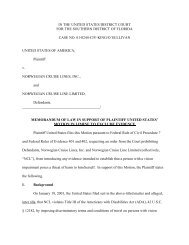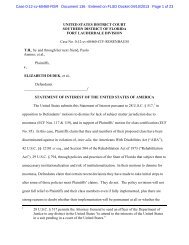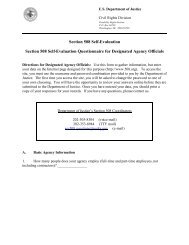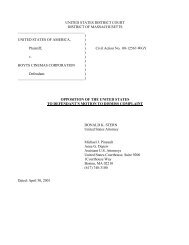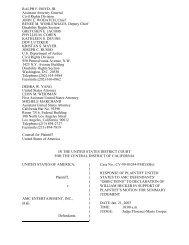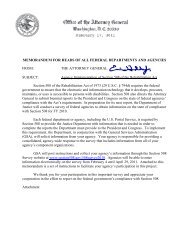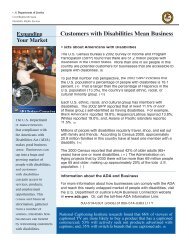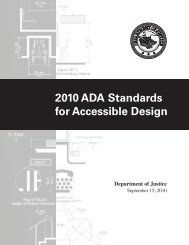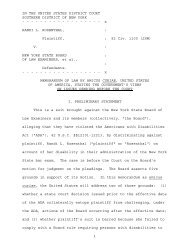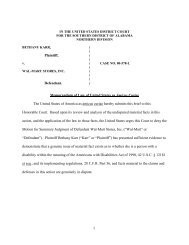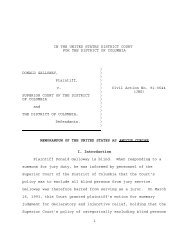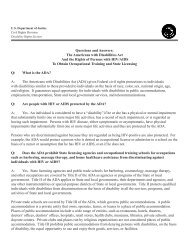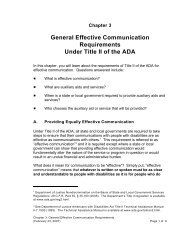US v. Norwegian Cruise Lines, Inc. and Norwegian ... - ADA.gov
US v. Norwegian Cruise Lines, Inc. and Norwegian ... - ADA.gov
US v. Norwegian Cruise Lines, Inc. and Norwegian ... - ADA.gov
Create successful ePaper yourself
Turn your PDF publications into a flip-book with our unique Google optimized e-Paper software.
documents in the July 19 subpoena have been also been the subject of Defendants’ earlierInterrogatories, Requests for Production <strong>and</strong> Admissions, <strong>and</strong> Freedom of Information Act request.Compare, e.g., Defendants’ Second Set of Interrogatories, Interrogatory No. 9:Assuming that Title III of the <strong>ADA</strong> applies to foreign flagged cruise ships, a point whichNCL does not concede, please explain, with specificity <strong>and</strong> provide citations whereapplicable to specific authority, precisely what type of “criteria” would be sufficient tosatisfactorily demonstrate to the Department of Justice that the imposition or applicationof eligibility criteria which screen out or tend to screen out an individual with a disabilitywould be necessary for the provisions of the goods, services, facilities, privileges,advantages or accommodations.with July 19, 2001 Notice of Taking Deposition Duces Tecum, topic No. 5 (“Guidance as to whatwould constitute the appropriate criteria for screening out potential passengers on foreign flaggedcruise ships without violating the [<strong>ADA</strong>] necessary for a foreign flagged cruise ship to provide thegoods, services, privileges, advantages, or accommodations being offered.”). Such duplicativediscovery requests violate Rule 26(b)’s limitations on cumulative discovery, <strong>and</strong> the Court shouldtherefore deny Defendants’ requests. See, e.g., Naartex Consulting Corp. v. Watt, 722 F.2d 779, 788(D.C. Cir. 1983) (district court properly denied additional discovery when plaintiff already had anample opportunity for discovery); United States v. Upton, Civ. No. 3:92-CV-00524(AWT), 1995 WL264247, *1 (D. Conn. Jan. 26, 1995) (district court denied depositions of Internal Revenue Serviceagents because defendants had documents reflecting the information sought <strong>and</strong> the burden of thedepositions outweighed the likely benefit).2. Balancing of Interests Favors United StatesFinally, “a court may use Rule 26(b) to limit discovery of agency documents or testimony ofagency officials if the desired discovery is relatively unimportant when compared to the <strong>gov</strong>ernment17



